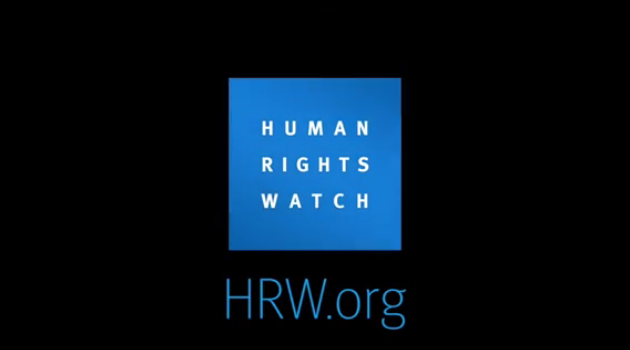From Human Rights Watch (HRW).
Libya’s judiciary convicted 99 defendants in a mass trial on August 15, 2018, sentencing 45 to death and 54 to five years in prison, Human Rights Watch said today. The judiciary has a record of conducting unfair trials.
The Government of National Accord should uphold the de-facto moratorium on the death penalty and move toward complete abolition. Libya's Supreme Court, in its review of the verdict, by the Tripoli Court of Appeals, should critically evaluate the evidence in the case, including whether confessions were extracted through torture or other illegal means.
“A judiciary that is in shambles has no business sentencing defendants to death by the dozen,” said Eric Goldstein, deputy Middle East and North Africa director at Human Rights Watch. “The quest for justice for past crimes can be fulfilled only through trials that are fair, not through judicial killings.”
Since the end of the 2011 revolution that ousted Muammar Gaddafi, the right of defendants to a fair trial has continued to be undermined by obstacles to accessing lawyers, the use of coerced confessions as evidence, lack of access to court documents, and prolonged arbitrary detention, with no respect for due process. Human Rights Watch has also documented intimidation, threats, and attacks by armed groups against lawyers, prosecutors, and judges. Courts and prosecutors’ offices are only partly operational and are shut in some parts of the country.
The trial relates to the killing of protesters during the 2011 revolution. In an incident widely referred to the “Abu Saleem Highway Massacre,” Gaddafi sympathizers and members of his security forces in August 2011 allegedly ambushed and killed 146 anti-Gaddafi protesters in the Abu Saleem area of Tripoli, the capital, and hid some of the remains. Various armed groups started to round up people allegedly involved in the killings after the 2011 revolution ended. However, prosecutors only started interrogating the suspects in 2014. The case went to court in August 2015.
Human Rights Watch in October 2015 interviewed some of the defendants at a prison known as “Al-Roueimy” in the Ain Zara area of Tripoli. Defendants described ill-treatment that appeared to amount to torture at various detention facilities, including one run by the Abu Saleem Council, an armed group controlling the area since 2011. The defendants also said they had lacked access to lawyers during their interrogation, and initial court sessions. A defendant also said that armed guards would accompany defendants to interrogation sessions with the prosecutors, which they found intimidating.
A statement on August 15 by the Justice Ministry of the internationally backed Government of National Accord in Tripoli said that the court had originally charged 128 people in the “Abu Saleem Highway” incident. In addition to the 99 sentenced and 22 acquitted by the court on August 15, one defendant was freed under an amnesty law, three died in detention in circumstances that the statement did not elucidate and the cases of the remaining three had been tried previously.
Both the prosecutor and defendants can seek a review by the Supreme Court cassation chamber. Also, under Libyan law, the Supreme Court reviews all death sentences and must confirm them before an execution can be legally carried out.
In an August 19 statement, the Justice Ministry emphasized that “the defendants in this case were given a fair trial and that all judicial guarantees were made available to them.”
International human rights law upholds every human being’s inherent right to life, and for countries that have not agreed to ban the death penalty completely, it limits the death penalty to the most serious crimes, typically crimes resulting in death. It strictly forbids the application of the death penalty in any case in which it does not appear that the defendant received a fair trial. In Libya, the death penalty appears frequently in legislation as a proposed punishment for various crimes, including at least 30 articles of the Penal Code.
Human Rights Watch opposes capital punishment in all circumstances because of its inherent cruelty and its irreversible and inhumane nature.
No death sentences have been implemented since 2010.
The August 15 Justice Ministry statement said that the court president and members, the defense lawyers, and relatives of victims and the defendants were present during the reading of the verdict. The statement makes no reference to whether the defendants attended.





